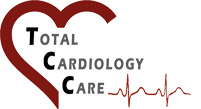Atrial Fibrillation
What is an arrhythmia (a.k.a. Atrial Fibrillation)? How do I know if I have an arrhythmia?
An arrhythmia is a heart rhythm disturbance, which can be a fast or slow heart rhythm problem. Usually they are not life threatening, but occasionally they can be dangerous. Arrhythmias typically cause symptoms of palpitations, such as skipped beats or irregular heartbeats. They can also cause shortness of breath, dizziness, chest discomfort, and occasionally fainting.
Arrhythmias can be caused by abnormal electrolyte levels (such as potassium or calcium); severe dehydration; heavy caffeine, alcohol or recreational drug use; infection; heart attack; structurally abnormal heart (such as a weak pumping function of the heart or a severely leaky heart valve); sleep apnea; and severe lung disease.
If you have risk factors or you have further questions about arrhythmia, please speak with one of the Total Cardiology Care cardiologists by calling (201) 216-9791.

